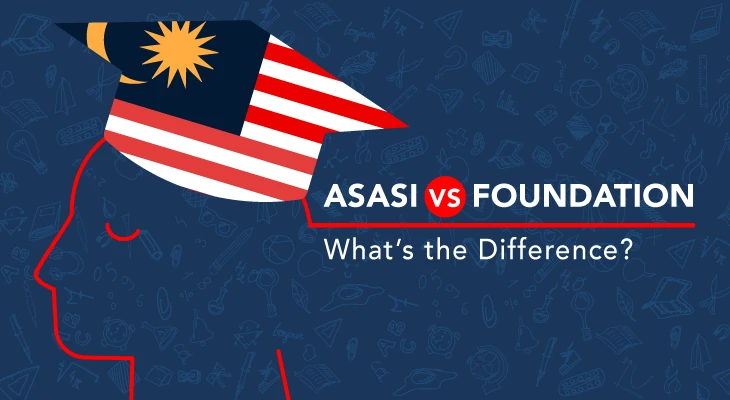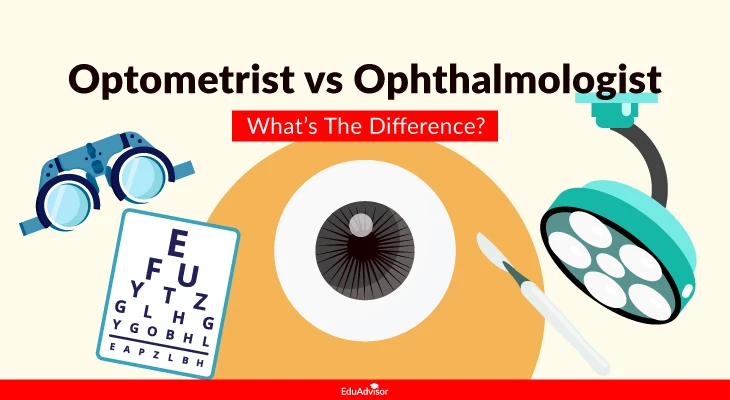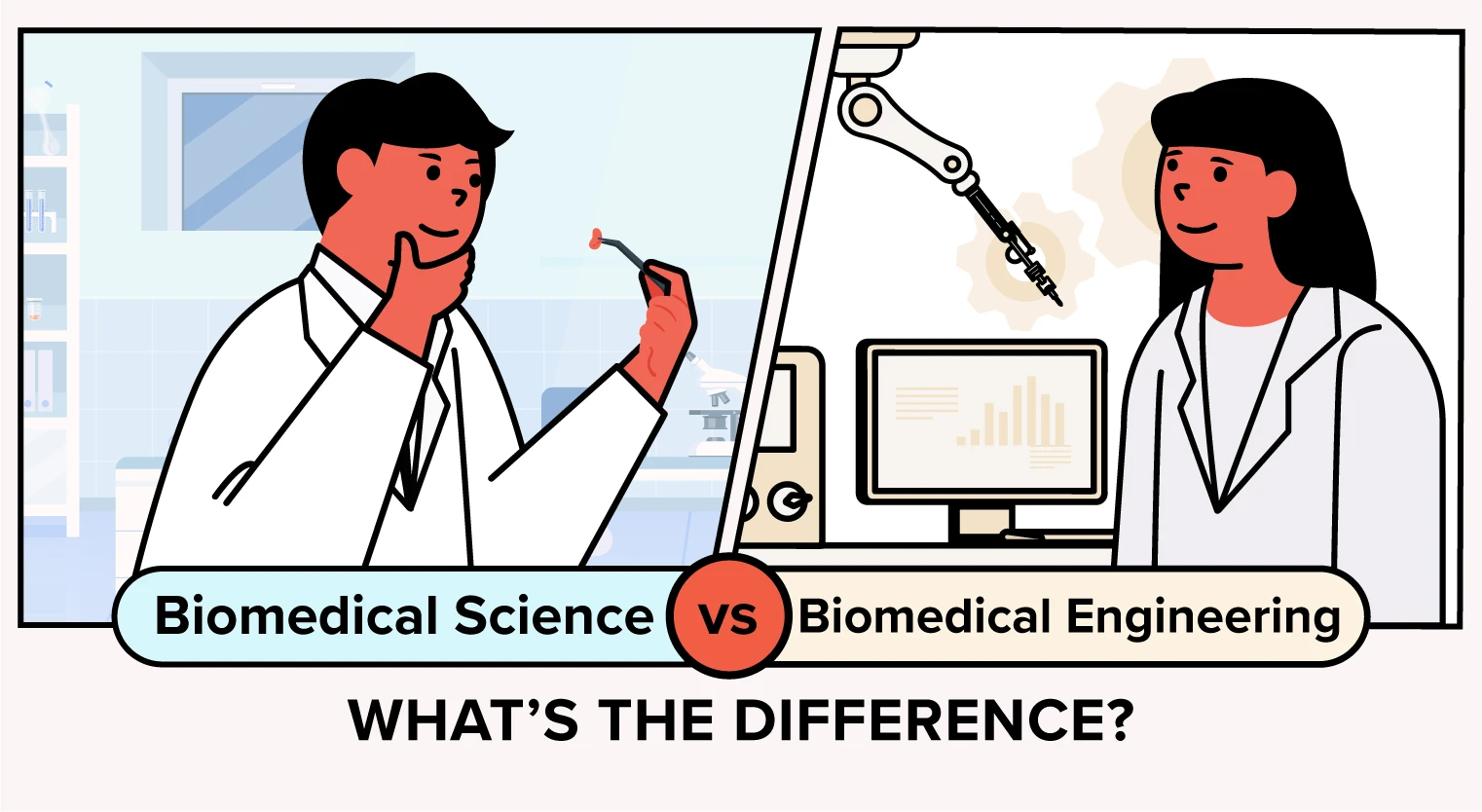Diploma vs Degree: What’s the Difference?
Can’t tell the difference between a diploma and a degree? You’re not alone. We break it all down here.
Published 29 Jun 2022
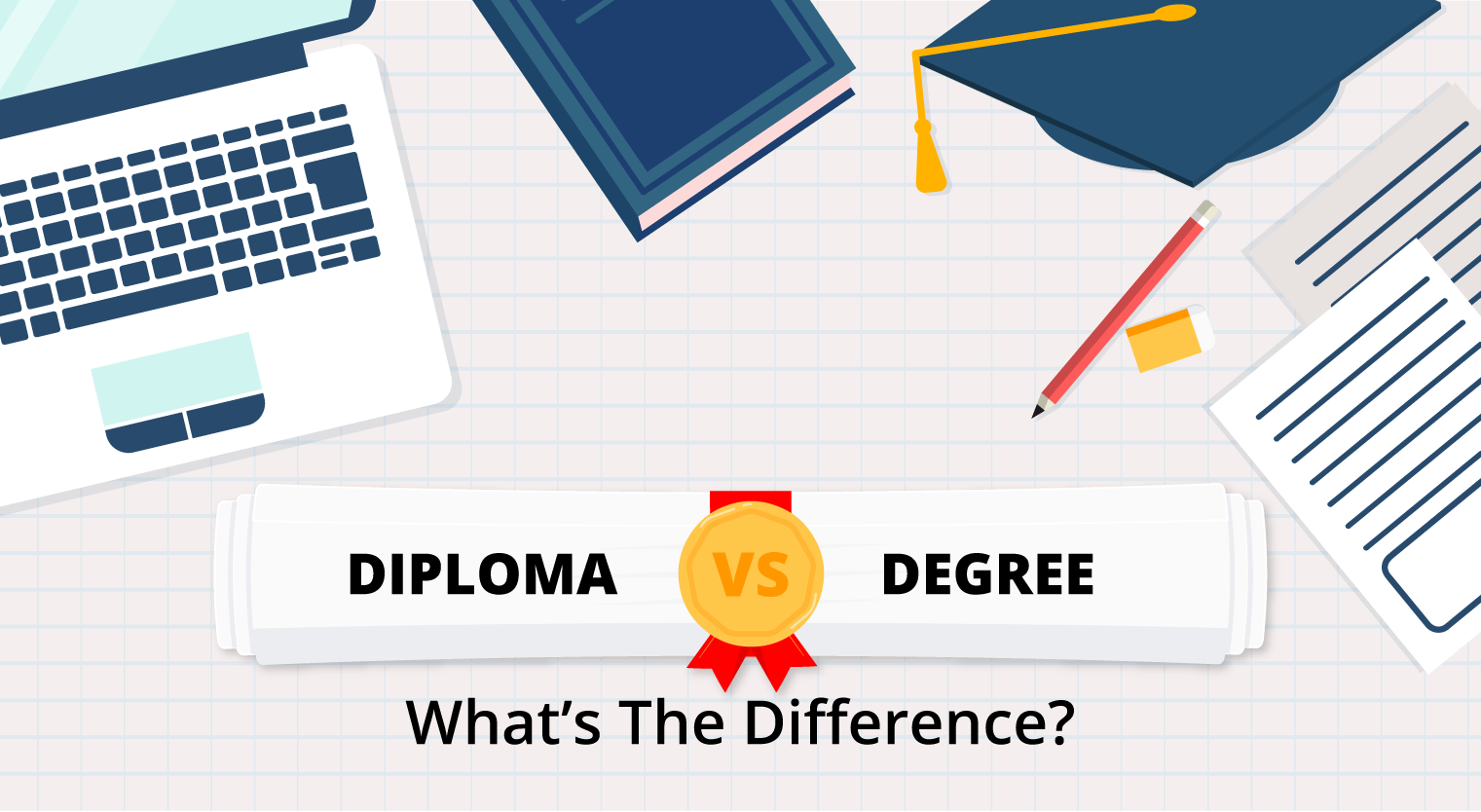
If you’re reading this, chances are you’re not sure how a diploma and a degree differ. You’re not alone. A diploma and a degree are completely different qualifications but many find it hard to differentiate and decide between the two.
In this article, we list the major differences between a diploma and a degree.
#1. A degree is a higher level of qualification compared to a diploma

First things first, while both are terminating qualifications (this means that you can use them for employment), a diploma and a degree are not on the same level of qualification. According to the Malaysian Qualifications Agency (MQA), a diploma is considered a level 4 MQF qualification while a bachelor’s degree is a level 6 MQF qualification.
This makes a degree a higher level of qualification. And this difference in level can affect a number of things. Sure, you can get a job with either qualification but the type of job and the starting pay can differ depending on whether you have a diploma or a degree.
This doesn’t mean that a diploma is useless. It still has many merits. But in terms of level of qualification, a degree holds more prestige, much like how a PhD holds more weight compared to a Master’s.
#2. They have different entry requirements
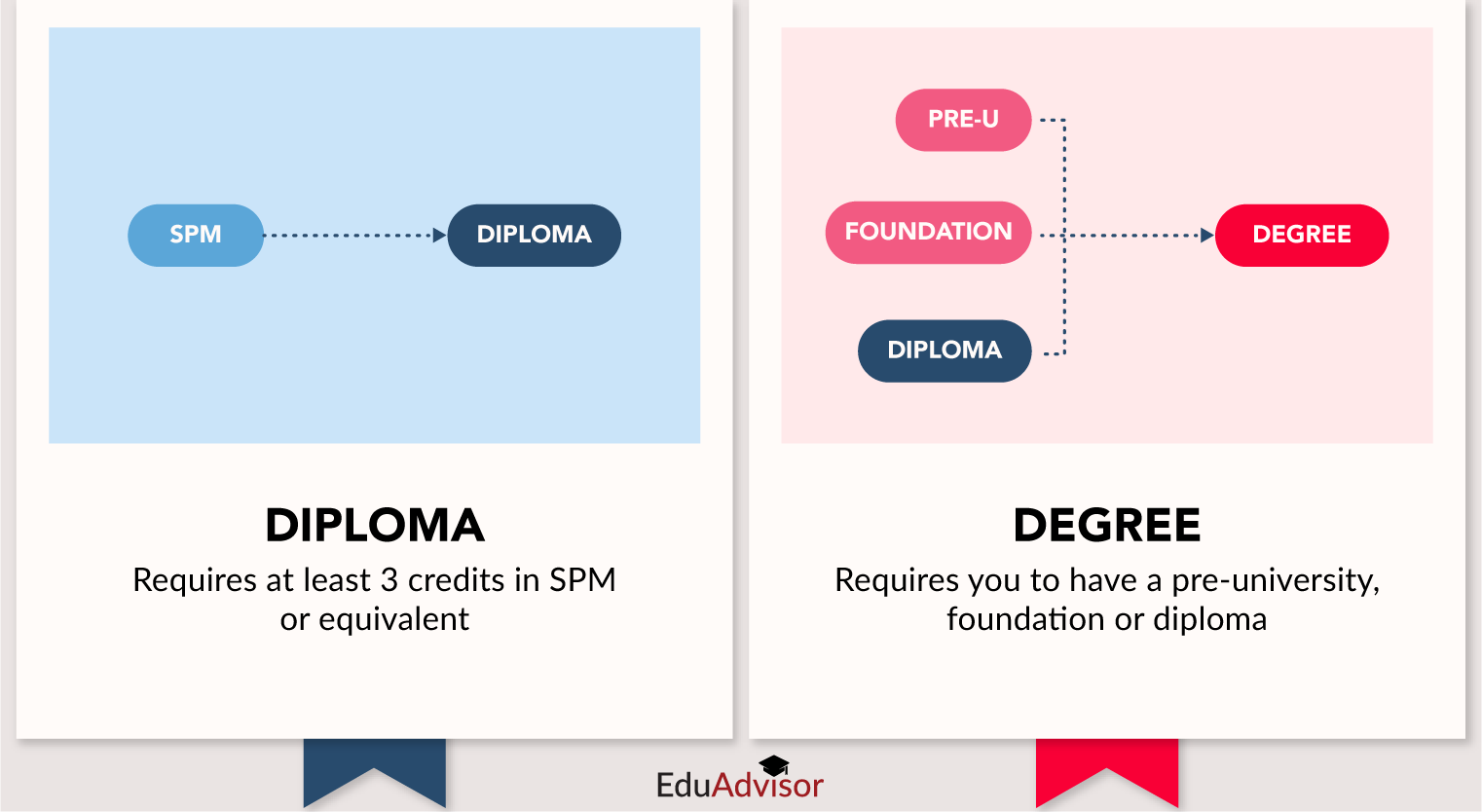
When it comes to comparing the entry requirements between a diploma and a degree, it’s not a matter of higher versus lower grades. The two require completely different levels of education as their minimum entry requirement.
To get into a diploma programme, you will need an SPM qualification or equivalent. This often means at least 3 credits at SPM level.
As for a degree, you’ll need to have successfully completed a pre-university (e.g. A Levels, SACEi, STPM), foundation or diploma programme to enter. That’s right, a diploma can be used to get into a degree as a degree is a higher level of qualification.
#3. The study duration for a degree is longer than a diploma
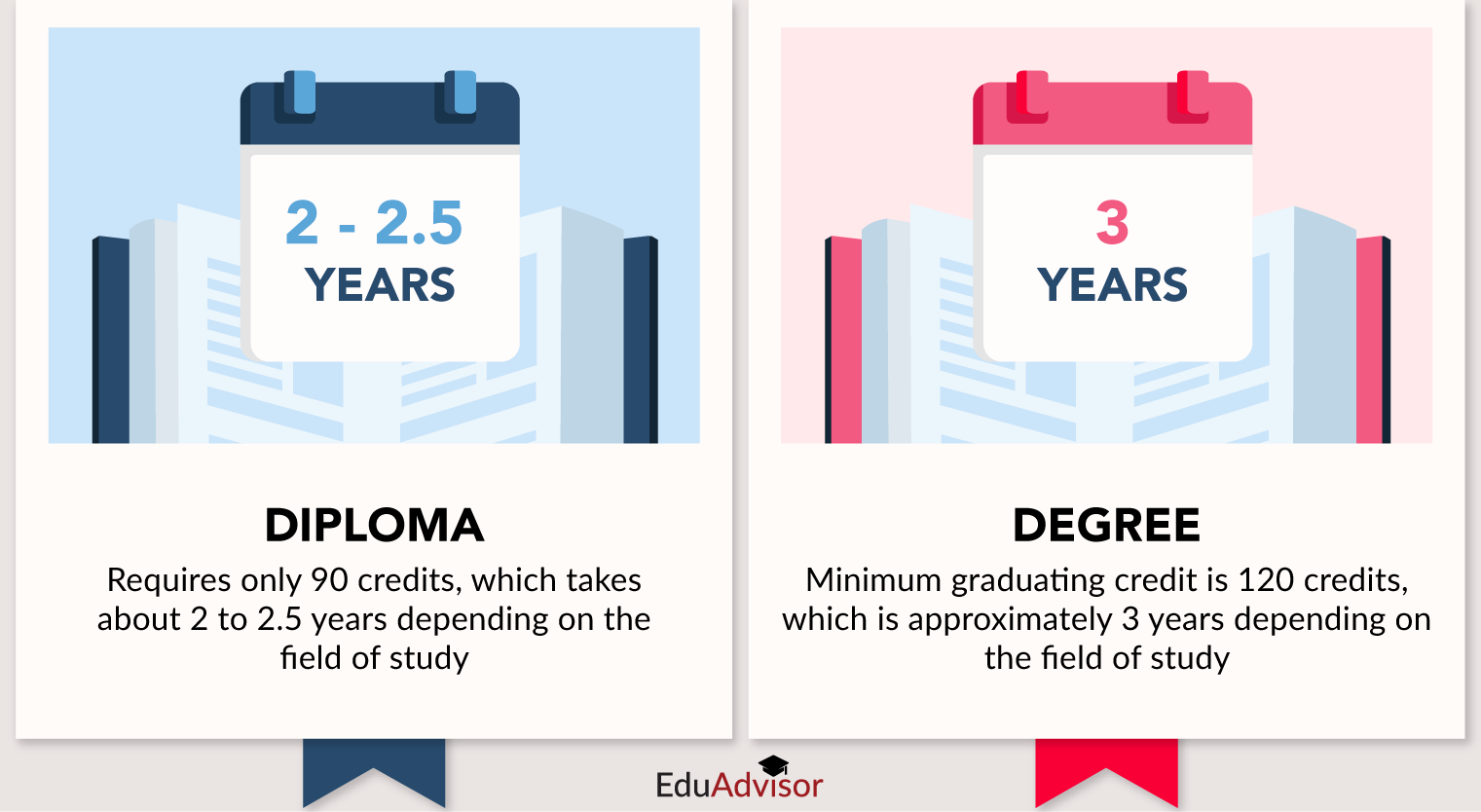
To be considered a graduate of any qualification whether it’s a certificate, diploma or a degree, you must complete a specific amount of credit hours as part of MQA’s requirements, which ultimately impacts the study duration.
In general, the minimum graduating credit for a degree is 120 credits, which translates to approximately 3 years. Certain programmes, such as medical and health sciences, may have a higher number of minimum credit hours.
On the other hand, a diploma usually requires only 90 credits, which takes about 2 to 2.5 years depending on the field of study. This makes it a shorter programme compared to a degree.
PRO TIP
If you complete a diploma and wish to pursue a degree, you have the opportunity to transfer 50% of the credits earned from your diploma into your degree, provided that you achieve a minimum grade of B for your subject score. This allows you to shorten your degree duration from 3 years to 1.5 years.

#4. A diploma is generally cheaper than a degree

Due to its lower level of qualification and shorter duration, a diploma is often significantly cheaper than a degree. A diploma is also eligible for PTPTN loan.
In contrast, while a degree is also eligible for PTPTN, the pathway programmes to a degree (e.g. Foundation in Science, Foundation in Arts, A Levels, SACEi, etc.) are usually not.
This may be an important factor to consider if money is an issue.
Apply for university with EduAdvisor
Secure scholarships and more when you apply to any of our 100+ partner universities.
Start now#5. A diploma emphasises on practical skills while a degree is more academic

Another notable difference between the two programmes lies in its curriculum.
A diploma is typically more practical in nature as it is primarily focused on getting you trained and qualified for a particular area or trade. This makes it a perfect option for those looking for a more hands-on approach to their education.
A degree, on the other hand, tends to focus more on the theoretical side of knowledge. In your study, you would be expected to conduct research and write papers. There might be instances where you would take part in hands-on training but a bulk of your education would be focused on strengthening your theoretical knowledge of the field.
Which you choose really depends on what you're planning to study. Some fields such as culinary arts and aircraft maintenance rely more on practical skills rather than academic knowledge and education level, so a diploma would be more appropriate. For others, especially programmes in professional fields such as law, engineering and architecture, a degree would be the better choice.
#6. Degree holders have access to more job opportunities

Both diploma and degree are terminating qualifications that you can use to apply for jobs. However, the kind of jobs you can apply for depends on whether you have a diploma or a degree.
A degree, which is a higher qualification between the two, will open you up to more job opportunities at higher levels compared to a diploma. Additionally, some jobs are only open to degree holders. This typically applies to professional roles such as doctors, engineers and lawyers but could also extend to managerial positions as well.
This doesn’t mean that you should always opt for a degree. Between the two, it takes a shorter time to go into the workplace with a diploma. And you can always upskill, take up additional training and short courses, or even continue on with a degree to qualify for higher-level jobs.
The truth is that it’s not a linear path. Many employers simply seek employees that can do the work and for some of them, it might not even matter if you have a diploma or a degree. It’s a case-by-case scenario so while most employers may show a preference for a degree holder, that does not mean there are no positions for you in the workplace.
#7. A degree typically pays more

The difference in level can also impact your salary. On average, a degree holder will earn approximately 50% more than a diploma holder.
Having said that, there are many factors that come into play when it comes to salary. It should be noted that you can go into the workplace earlier with a diploma and by the time your fellow degree graduates go into the workplace, you could have been working for far longer, which can lead to more working experience. This can also bump up your salary.
So, diploma or degree — which should you choose?
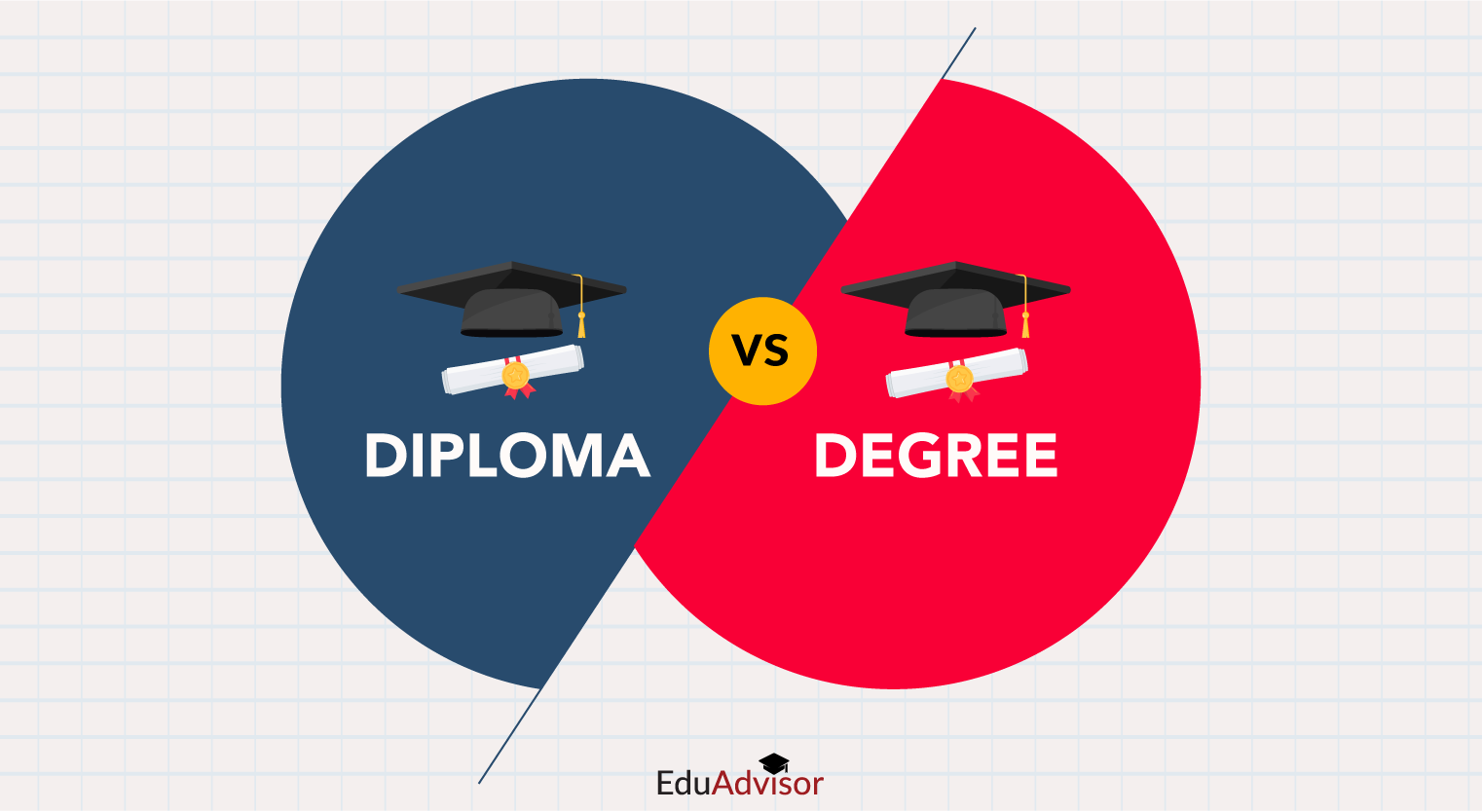
As an SPM leaver, you’ll generally have two pathway choices — take a diploma with the option of progressing into a degree later on, or take a pre-university /foundation programme followed by a degree. Which pathway you choose depends on your career objectives and circumstances.
You should choose the diploma pathway if…
- You’re in a hurry to start working — the qualification is recognised for employment and you can complete it in as quickly as 2 years
- You want to get into an industry that emphasises practical and hands-on skills over academic knowledge (e.g. culinary arts, automotive technology, aircraft maintenance)
- You require financial aid such as a PTPTN loan to fund your studies (pre-university / foundation programmes are not eligible for PTPTN while a diploma is)
- You didn’t get the minimum grades for entry into a pre-university or foundation programme

You should choose a foundation/pre-university – degree pathway if…
- You want a higher level of education before entering the workplace
- You want to get into a professional industry that requires you to complete at least a bachelor’s degree
- You want access to more job opportunities and a higher pay the moment you enter the workforce
- You have your own source of funding for the first part of your study (most pre-university and foundation programmes are not eligible for PTPTN)
It’s worth noting that if a degree is your ultimate goal, then the duration from SPM to degree is the same whether you choose a foundation/pre-university or a diploma.
This is because if you pursue a related degree after your diploma, you can get exemptions of up to 1 year from your degree, bringing the total study duration to be 4 years (2 years for diploma + 2 years for most degrees). This is the same if you were to pursue a foundation and a degree (1 year for foundation + 3 years for most degrees).
So there you go. We hope this has given you some insight into the differences between a diploma and a degree. It’s worth mentioning that neither programme is better than the other. Which one you choose should depend on what you’re looking for out of your education.




